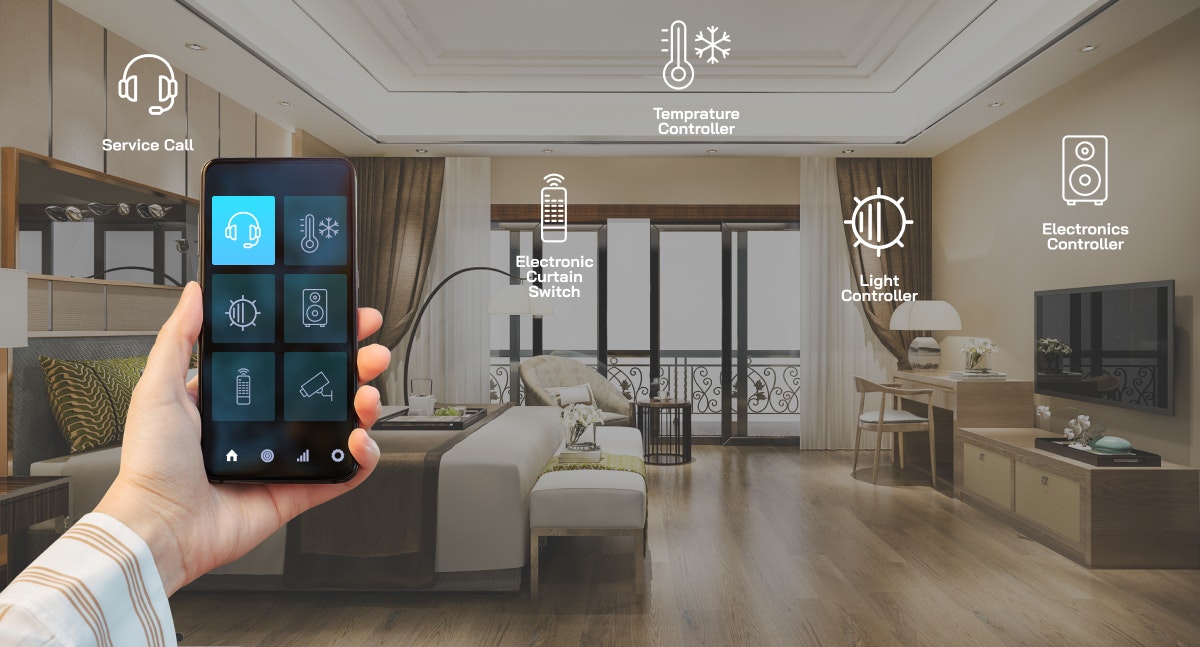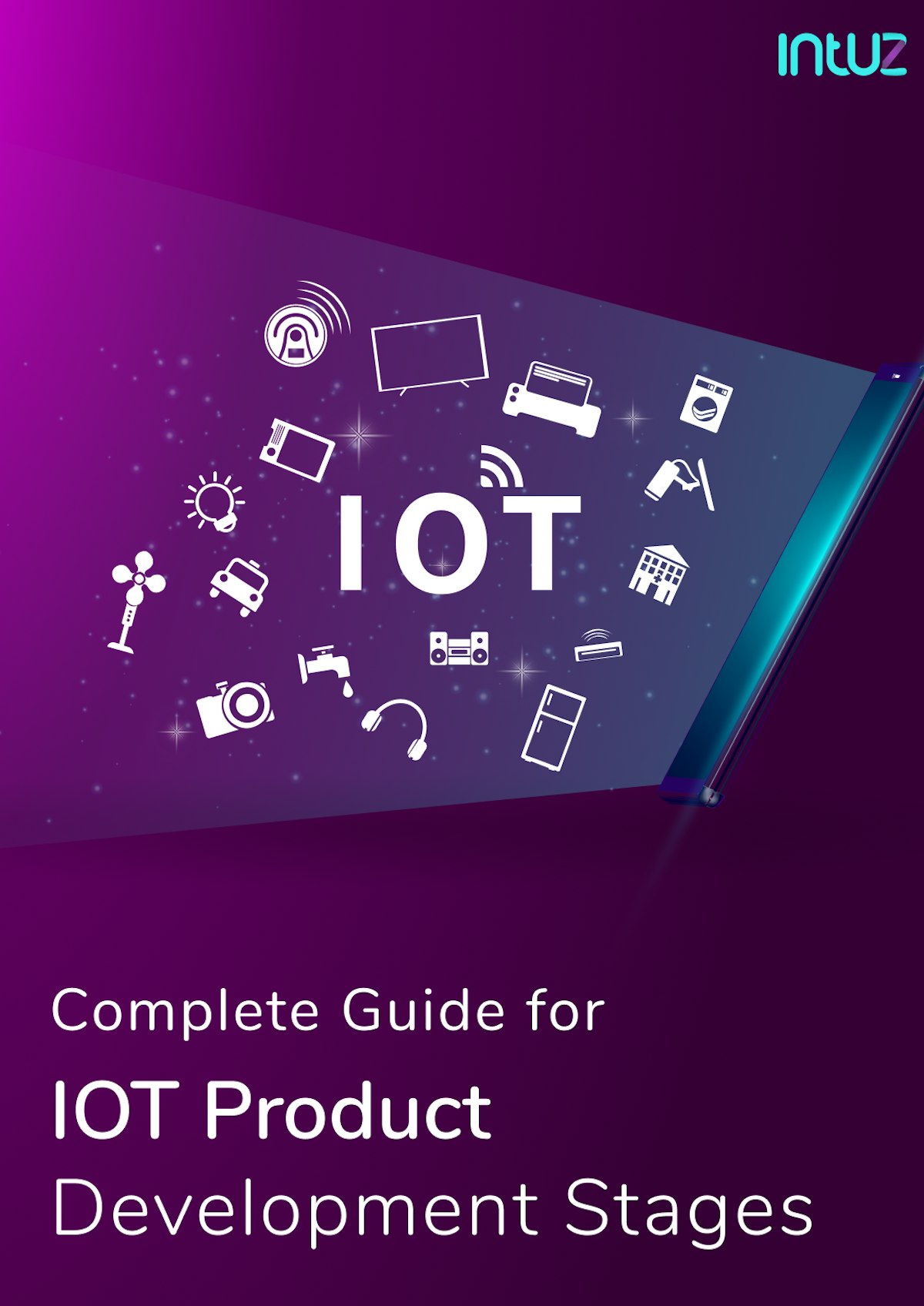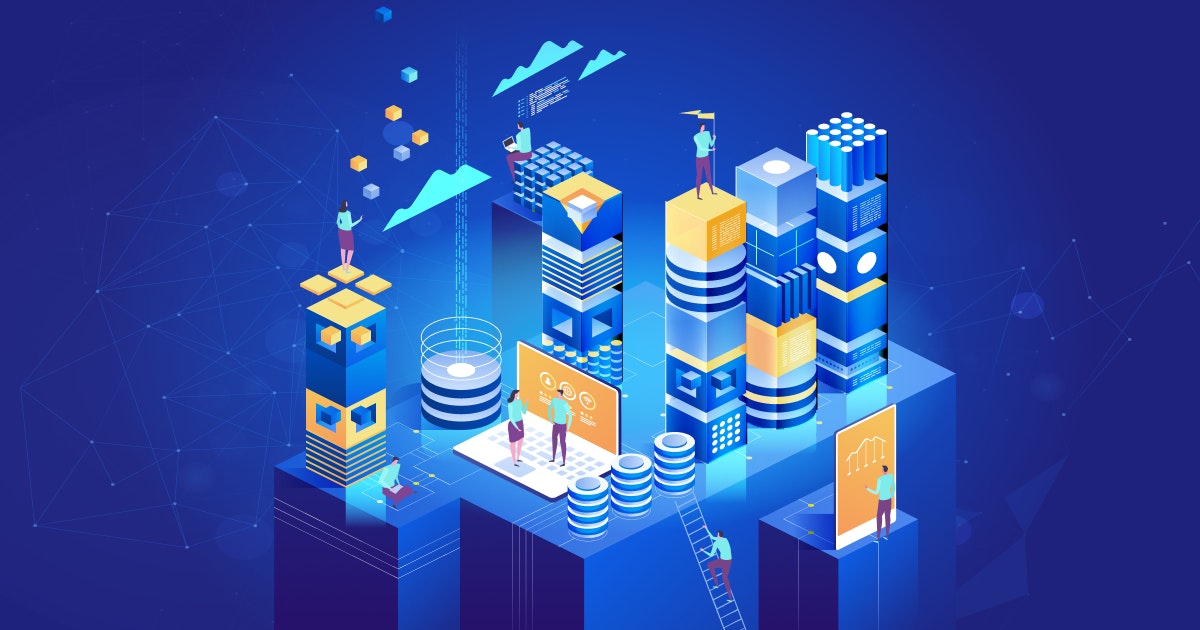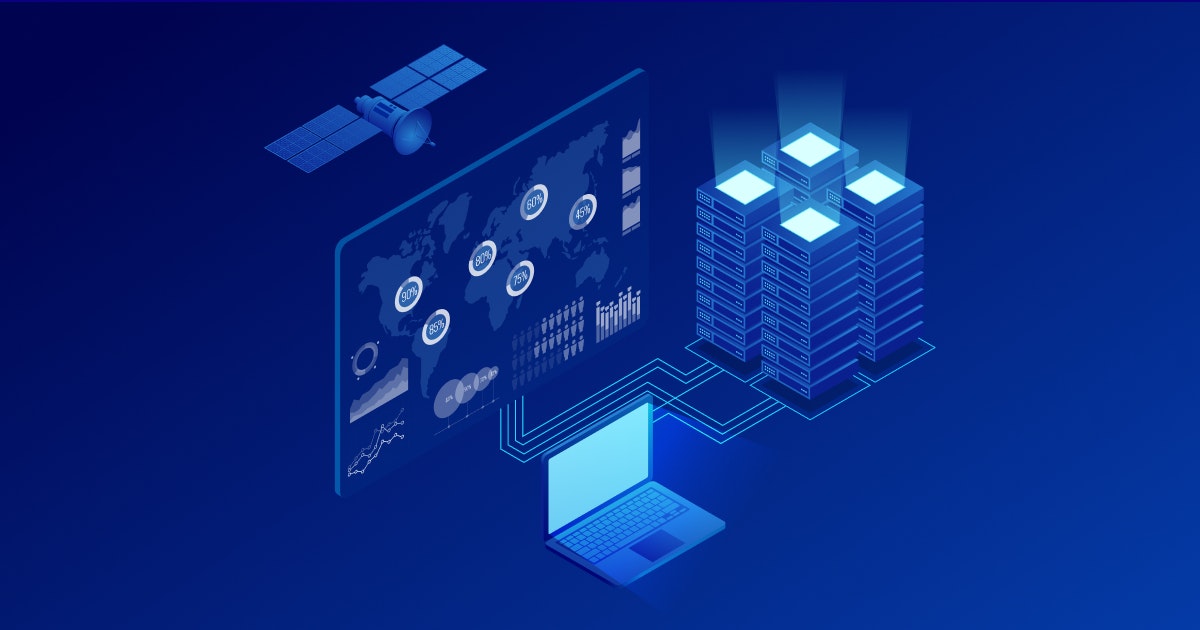Table of Content
After three long years, the travel industry has finally started to make progress. An increasing number of people are making summer plans, getting out, and traveling to domestic locales and abroad. All the top destinations are overflowing with people - and that is delightful!
Naturally, hotels, cruise ships, resorts, restaurants, casinos, museums, and so on are looking to gather customer data, automate processes, and deliver a better experience. IoT has genuinely got the potential to transform the hospitality industry.
A 180-degree view of IoT and its use in hospitality
IoT simply refers to the network of physical objects connected through embedded sensors, actuators, modules, and other devices that collect and transmit real-time data about their usage and environment.
It is not surprising to know that many industries are already planning to increase their use of IoT solutions. Major domains with current 100+ million connected IoT devices are retail and wholesale, government, transportation and storage, electricity, and gas.
It is reported that the total number of IoT devices across all industries will grow to 8+ billion by 2030. Consumer-focused businesses in the hospitality industry have also been leveraging emerging IoT technology for some time now.
From carrying out a seamless customer experience to optimizing energy costs, businesses across the globe are taking advantage of IoT. According to PWC, 70% of hotel executives agree to use IoT proactively.
They say the technology helps them enhance the capabilities of their current systems and modernize their everyday operations in front-of-house and back-office work.
The Marriott IoT Guestroom Lab is what we could imagine as a futuristic hotel room. However, the concept is not new, as it was launched in 2017 to offer guests a personalized stay using the power of IoT.
It is part of Marriott's 10,000-sq-ft innovation lab and includes other partners in Samsung and Legrand that make the devices used daily connected and responsive. The built-in virtual assistant takes voice commands and can also be controlled through the app.
The lab works on everything - from maintaining your preferred shower temperature settings to remembering customer favorites for stocking the refrigerator. Marriott hopes to introduce such IoT elements in its hotel rooms in the next five years.
Transform Your Hotel with IoT-Enabled Smart Hospitality Technology!
Let's Get StartedReal-life examples of IoT in the hospitality industry
When IoT is combined with other powerful technologies such as data analytics and user mobility, it enables a new paradigm in hospitality. In the following section, we will learn seven excellent real-life examples of IoT:
1. Indoor Environmental Quality (IEQ) monitoring
The COVID-19 outbreak brought concerns about hygienic spaces and clean air within hotels, restaurants, and conference centers to the top of everyone's priority list. No wonder IEQ is now seen as an integral part of the facilities offered by every well-maintained venue.
The intention is not only to cut down energy consumption costs but also to keep guests safe. Wireless IoT sensors ensure that publicly-used spaces have clean air to breathe, ambient temperature, light, and noise.
The IoT technology provides insights into each critical indoor climate factor to protect guests' health, comfort, and productivity. The data from the IoT sensors helps in identifying and maintaining superlative conditions to maximize guest comfort.
2. Energy optimization
Hotels spend 6% of their operating costs on energy, accounting for around 60% of their carbon footprint. That is where IoT comes in handy to boost the sustainability efforts of hoteliers and resort owners.
The technology fetches and gathers data from occupancy sensors across the hotel to collect insights from guest rooms, conference rooms, and recreational facilities.
The insights are used for automatically optimizing power consumption depending upon usage. In a nutshell, IoT helps achieve energy savings by adjusting to room conditions.
3. Consumables monitoring
Hotel managers face the challenge of ensuring their occupants have adequate access to vital consumables and hygiene essentials. It is, in fact, difficult for them to ensure the availability of bath soaps, hand sanitizers, and toilet paper ever since the pandemic upended our lives.
Unless you have been living under a rock, you will know that the demand for these items grew immensely. IoT sensors allow hotel managers to keep track of the consumables and maintain an efficient supply chain of hygiene-related products.
IoT helps them prevent supplies from running low at any given time in all spaces, including guest rooms, business centers, and gyms. Besides effective inventory management, timely replenishment of supplies ensures a great customer service experience.
4. Cleaning services and sanitation
Health and wellness have been at the top of the minds of people since the COVID-19 pandemic. Maintaining a regular disinfection routine is paramount at hotels, restaurants, casinos, museums, and so on.
IoT sensors help detect the number of people in a given space in a specific period. They provide timely notifications to properties, especially when meeting rooms, gym floors, and pools need attention. Hospitality staff members can keep track of the footfall in different areas and ensure that cleaning and sanitization are done on time.
5. Footfall control
To curb the spread of COVID-19, governments worldwide created new restrictions on the number of visitors allowed in restaurants, hotels, or similar public spaces. IoT helps ensure compliance with these regulations.
Using people-counting systems helps facility managers keep track of the number of individuals entering or exiting any given area at any time. The system also alerts facility managers when the traffic exceeds the threshold so that they can take appropriate action.
6. Predictive repairs and maintenance
Customer satisfaction is of utmost importance in the hospitality industry and mainly depends on uninterrupted service. Wireless IoT sensors help provide even better care by monitoring the status of appliances and equipment used in hotels, restaurants, and resorts.
They capture data on their working status, detect unusual performances, and notify maintenance personnel about defects. It prevents further deterioration of equipment and reduces repair costs while ensuring uninterrupted services for guests.
Facility managers can ensure maximum uptime of all equipment. At the end of the day, you want your guests to avail all amenities, and IoT enables that.
7. Guest room automation
An exciting IoT trend in the hotel industry is guest room automation. Hotels deploy IoT-enabled advanced hospitality solutions to provide customized services to their guests. It allows the latter to control their rooms using smart devices such as mobile phones or tablets.
citizens hotels, for instance, allow their guests to manually control temperature, lighting, television, and music from a tablet. In other scenarios, many IoT-enabled devices identify and record guest preferences for future stays and automatically regulate their settings.
The data is also shared with other hotels of the same hospitality company through a CRM system. That ensures that customers get the best possible experience at their hotel, irrespective of location.
Six examples of IoT applications used in the hospitality industry
If you have read so far, you will agree that IoT solutions for hotels promise to make them smarter and more successful at what they do. This is especially the need of the hour - given how the pandemic stalled our travel plans for three years
Adding to that, there are six examples of IoT software solutions providing opportunities for the hospitality industry to serve customers better, increase the efficiency of operations, and deliver competitive services:
1. Location-based information
The hospitality industry uses technologies such as Bluetooth and GPS to gather location-based data, which can be used by their applications to deliver messages when the customer is most likely to make a decision.
Location-based information
For instance, The hotel can promote its gym services when the guests are near the gym or update them about the restaurant's menu through SMS texts as they walk by the in-house restaurant.
There are several other uses of the data, such as sharing local transport links or sending descriptions of nearby tourist attractions. Facility managers can even use the data to optimize staffing levels within a particular space - such as increasing the availability of wait staff at breakfast buffets.
2. Asset tracking system
Asset tracking system
In smart hotels, the guest services staff can use IoT devices for asset tracking. The technology allows them to monitor and track cleaning carts or luggage racks. The information lets the asset tracking systems streamline housekeeping procedures and gives hotels an idea of equipment availability.
3. Smart room customizations
Smart room customizations
Smart solutions in hotel rooms make the stay more convenient for guests. IoT devices allow more customization and control as per guest preference. Common options are.
- Lighting: Guests can switch colors, modify the hue, and adjust the light temperature in their room. They can even select shifting colors to suit their mood and need. This is literally possible at citizenM hotels.
- Room temperature: Unlike window A/C units, smart thermostats in rooms ensure optimal room temperature as per the guest's comfort. It offers a suitable temperature setting and provides energy savings.
- Controlling water temperature: IoT-enabled valves and sensors can be controlled via mobile devices to set a suitable water temperature. That means the devices maintain the water temperature throughout their stay and even remember the customer preferences during future visits.
- Adjusting windows: Automated windows can be controlled by guests. They can change the settings as per their preferences by pressing a button or with a click on the app of their smart device. How useful!
- Smart TVs: Smart TVs allow the guests to watch their favorite shows and receive important information such as weather forecasts, flight updates, and local information in real-time. Hotels and resorts can easily customize the guest experience.
- Digitized food menus: Smart hotels use digitized food menus in hotel rooms. They offer visitors many food choices on their smart TV or phone app. Guests can use the same devices to place an order, and their food preferences are recorded for future stays.
4. Smart locks and security solutions
Smart locks and security solutions
Hotel guests can access their room without needing a key card thanks to an IoT security solution. Installing smart locks allows them to enter their room with the help of a mobile app. Integrating IoT sensors with security products such as alarms can enhance guest security. For instance, an audio alarm or emergency light would be triggered in case of a security breach.
5. Key card integrations
Key card integrations
Guests can experience greater ease using IoT-powered key card integrations such as mobile keys or room key applications. They can use these advanced key card alternatives through their smart devices. An IoT solution for hotels allows them to control door locks, room temperature, water temperature, or window shade settings.
6. Integration of tablet and mobile phone
Integration of tablet and mobile phone
The IoT-connected hotel environment offers guests a user-friendly alternative to placing room service or housekeeping requests by calling the front desk. Guests can directly place a request through an app or web portal on a smart device. It allows staff to be easily accessible to guests and ensures quicker service delivery.
Benefits of IoT integration in the hospitality
IoT is undoubtedly changing how hotels, resorts, restaurants, and other leisure service providers interact with their customers.
The technology has immense potential to transform the hospitality industry by gathering customer data and automating processes accordingly. IoT uses embedded sensors, actuators, and other devices to connect with physical devices.
The data is processed in real-time to generate information related to customer activities throughout the network. The technology can be integrated with user mobility or data analytics to help hospitality businesses optimize operations and ensure quality control. Simply put, IoT enables them to:
1. Improve guest experiences
To stay competitive in today's market, businesses must provide customers with top-notch amenities and flawless services. Advanced technology helps deliver a unique experience that sets you apart from the competition.
2. Optimize processes
Digital methods help in reducing operating costs while increasing productivity. It leaves staff more time to improve existing services and develop new ones based on their analysis and market research. What is more - businesses can focus on offering clients more value by automating routine processes.
3. Learn more about guest needs and preferences
Hospitality businesses can use the IoT-powered data collected during customer interaction to tailor their products and services. It helps deliver a more personalized customer experience each time the guest arrives.
4. Make businesses smarter and more efficient
Proactive monitoring of infrastructure allows businesses to check on the health of all critical equipment. Efficient maintenance processes help minimize downtime and save money while delivering a delightful customer experience - without any roadblocks or hiccups.
End-to-end operational and network management
IoT network solutions enable multiple virtual networks that operate separately on the existing physical infrastructure. Businesses do not require to invest in additional frameworks. Wired and wireless technologies work seamlessly on the Unified Access framework.
They work together as a single network driven by defined policy rules. The framework is robust and protected through a standard authentication scheme and a single authentication database. A single management system manages all elements of the infrastructure.
The management suite offers a single dashboard view of all virtual environments, switches, access points, and other components from wired LAN and wireless WLAN networks. This is extremely necessary since the growth of IoT has brought an explosion of cyber security threats.
With so many IoT apps and sensors in place, there is always a greater chance for an expanded network attack surface. IoT is susceptible because the apps are manufactured without keeping security in mind or developed by companies that do not fully understand the implications of security. This is a prevalent problem across industries, including hospitality.
Top IoT development tools & platforms with comparison [2022]
Learn MoreThe future digital technologies for hotels and resorts
The next few years will be an exciting time for the hospitality industry as new trends emerge and technology built to meet specific business needs continues to evolve.
With the proliferation of IoT, the hospitality industry will be presented with new opportunities to transform the guest experience. The rising expectations of customers and adoption of smart hotel solutions powered by IoT will become an industry standard.
Hoteliers want to offer their guests the best in accommodations, service, and modern amenities. As a result, we are seeing more hotels built that are not just smart but also futuristic.
To take advantage of the many benefits that come from integrating IoT into a hotel, it is imperative to have one solution for bringing everything together. It will help avoid creating new data silos and expand the scope for future innovations or upgrades.
Ideally, IoT adoption must start with selecting a central software platform for all functions. It should allow one device to control and monitor all infrastructure, including lighting, shades, HVAC, sensors, and other amenities.
Let's Integrate IoT in Your Hospitality Business!
Explore solutionsOver to you
The future of IoT in the hospitality industry is bright as hotels implement the technology in various ways. The broader adoption of IoT-connected devices will soon make staff-less hotel rooms a reality.
IoT is not only going to help businesses save money but also enable them to let service automation take the guest experience up by several notches. The technology will surely streamline processes to make them more secure and accurate.
It will also free up the hotel staff, who can be better employed in more engaging and crucial client-facing tasks.
Book a Free 45-minute Consultation with Our IoT Experts Today! Get a customized roadmap and strategies to leverage IoT for your hospitality business.





